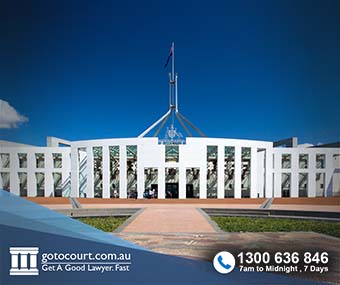Call our lawyers
now
or,
have our lawyers
call you
Changing the Sex Descriptor On a Birth Certificate (Vic)
Updated on Jun 25, 2019 • 3 min read • 214 views • Copy Link
Changing the Sex Descriptor On a Birth Certificate (Vic)
Under legislative changes proposed by the Andrews government, Victorians will be able to change the sex recorded on birth certificates without the need to undergo sexual reassignment surgery. The Labor government on Tuesday introduced a bill to allow individuals to nominate a gender to be listed on their birth certificate. This may be male, female or any other sex descriptor.
The changes, if passed, will be a departure from the current system, which requires a person to have had sexual reassignment surgery before their sex descriptor can be changed on their birth certificate. However, the Registrar of Births, Deaths and Marriages will be able to refuse to record a sex descriptor that is offensive or not a recognisable sex descriptor.
Under the changes, children will be also able to apply to change the sex descriptor on their birth certificate but they will require the support of their parents and a doctor’s statement that doing so is in the child’s best interests.
The bill was introduced to parliament previously and was voted down.
Support for the reform
Supporters of the change say that the new law recognised that some trans, intersex or gender diverse people cannot, or chose not to, have sexual reassignment surgery. The Victorian Attorney-General, Jill Hennessey, said, ‘the current surgery requirement sends a painful message that there is something wrong with being trans, gender diverse or intersex that needs to be ‘fixed’”.
The proposal has been backed by LGBTI groups such as Transgender Victoria, whose chair Brenda Appleton said it would allow members of its community to change ‘the most basic form of documentation to reflect our true identity.’
Trans, intersex and gender nonconforming people often have difficulty using ID in everyday situations when the sex recorded on it does not match their appearance or identity. Such people are often put in a position of having to ‘out’ themselves, not knowing what the response will be.
The changes would allow intersex people to record a sex descriptor that accurately reflects someone who is neither male nor female. Such a person could record their sex as ‘other’ or ‘non-binary.’
Opposition to the reform
The Catholic Church has expressed its disapproval of the reform, saying ‘we stick with the science’ when it comes to gender.
The Liberal opposition has expressed concern that the reforms go too far and represent a shift away from recording a person’s biological sex and towards recording the gender they identify as.
Other critics have called the proposal a ‘propaganda victory’ and complained that the changes promote the idea of gender as fluid.
What do these terms mean?
It is common in a discussion such as this for confusion to arise as to the precise meanings of the terms being used. In particular, the words ‘sex’ and ‘gender’ are often used interchangeably when they in fact have quite distinct meanings. The meanings of some commonly used terms are listed below.
| Term | Meaning |
|---|---|
| Sex | The reproductive and biological categories of ‘male’ and ‘female’ |
| Gender | The social and cultural differences and identities that attach to sex |
| Transsexual | A person who transitions from one sex to another |
| Transgender | A person who has a different gender to their biological / anatomical sex |
| Cis | A person who has the same gender as their biological / anatomical sex |
| Intersex | A variety of conditions where a person is born with variations in sex characteristics that do not fit the definition of either ‘male’ or ‘female’ |
| Gender non-conforming | Behaving or looking in a way that does not conform to what is expected for persons of their gender |
A convenient way of thinking about the difference between sex and gender is that sex exists in the body, whereas gender exists in the mind.
The bill is being debated this week and is expected to pass and become law.
If you require legal advice or representation in any legal matter, please contact Go To Court Lawyers.

Affordable Lawyers
Our Go To Court Lawyers will assist you in all areas of law. We specialise in providing legal advice urgently – at the time when you need it most. If you need a lawyer right now, today, we can help you – no matter where you are in Australia.How It Works











1. You speak directly to a lawyer
When you call the Go To Court Legal Hotline, you will be connected directly to a lawyer, every time.


2. Get your legal situation assessed
We determine the best way forward in your legal matter, free of charge. If you want to go ahead and book a face-to-face appointment, we will connect you with a specialist in your local area.


3. We arrange everything as needed
If you want to go ahead and book a fact-to-face appointment, we will connect you with a specialist in your local area no matter where you are and even at very short notice.













